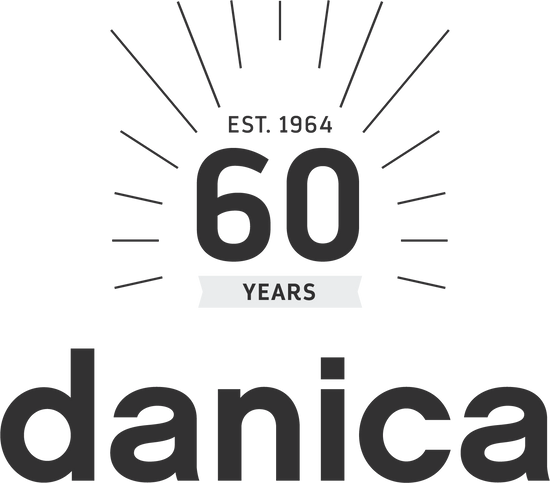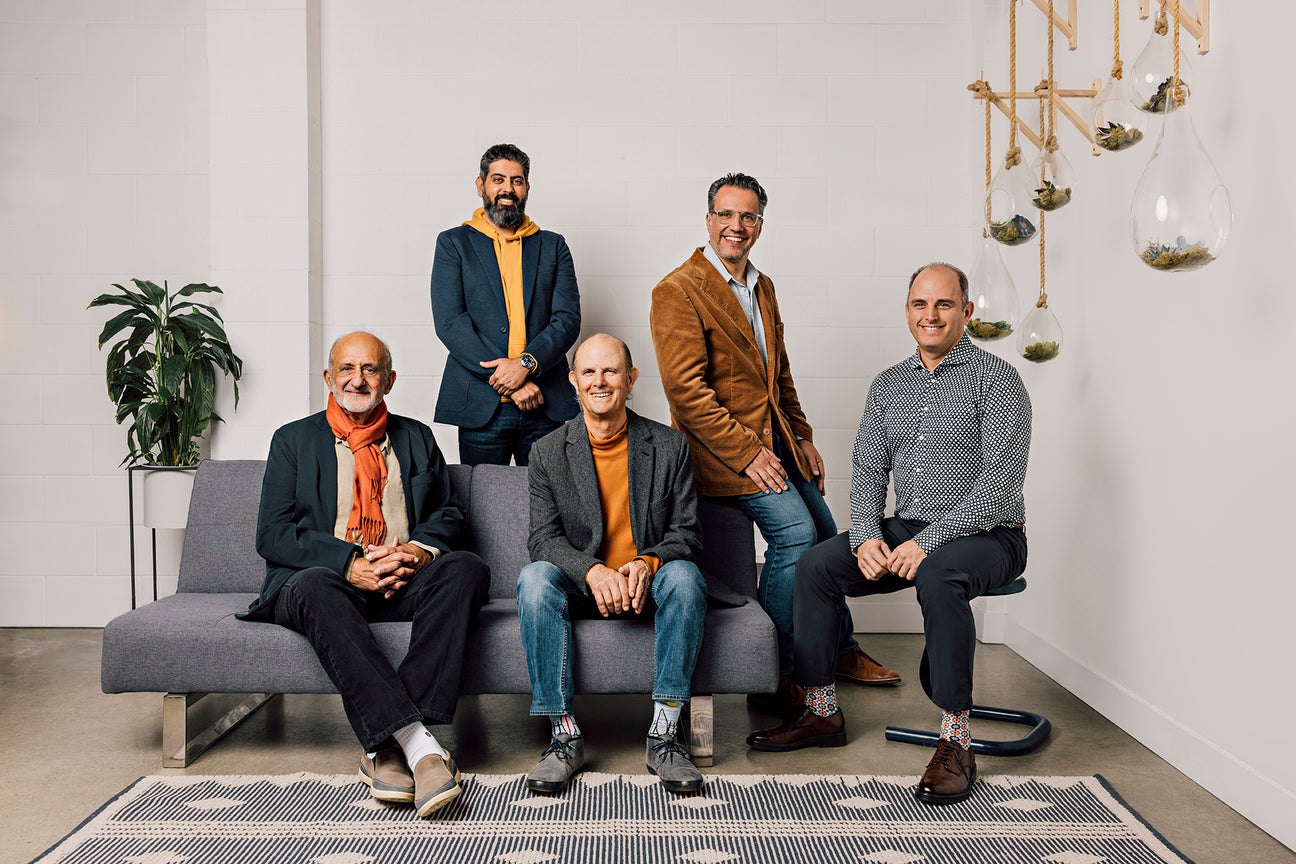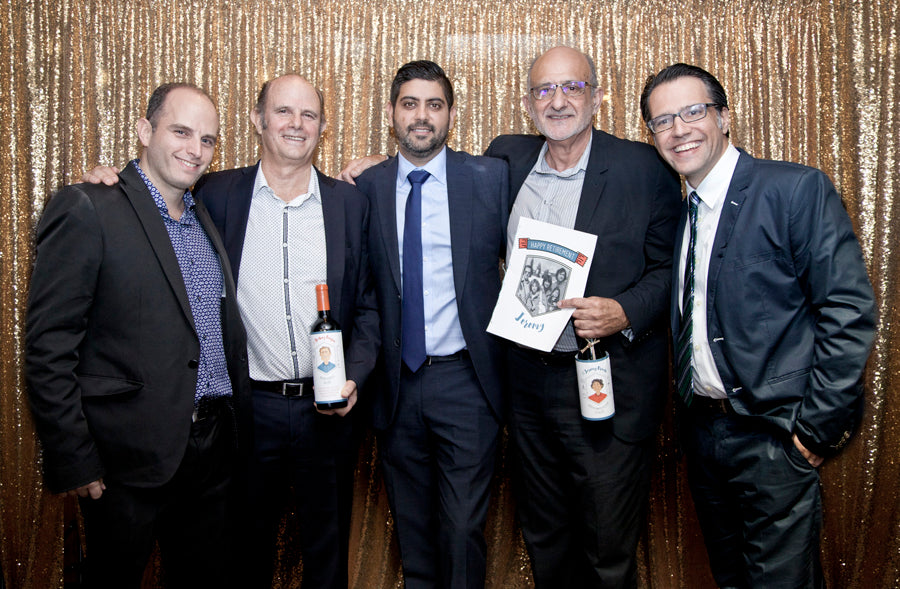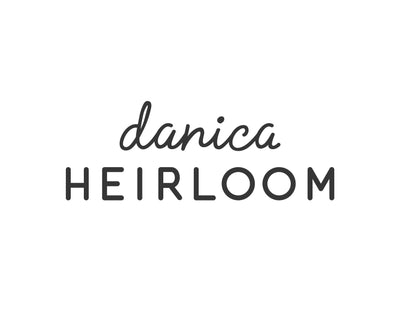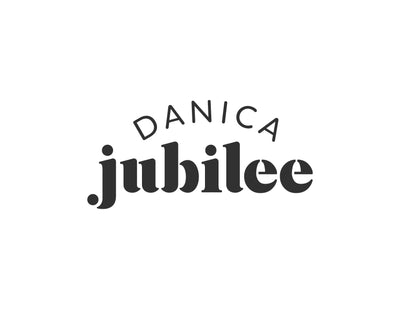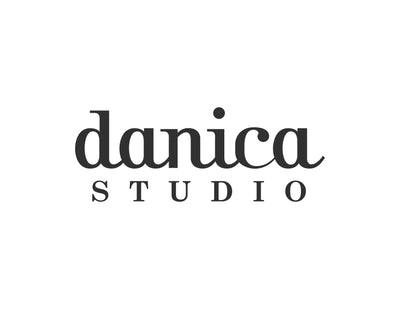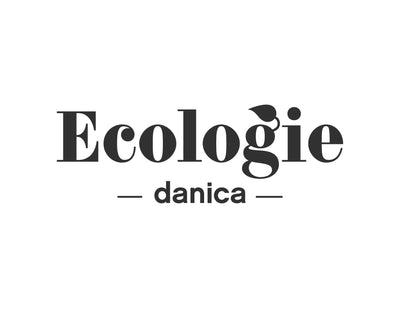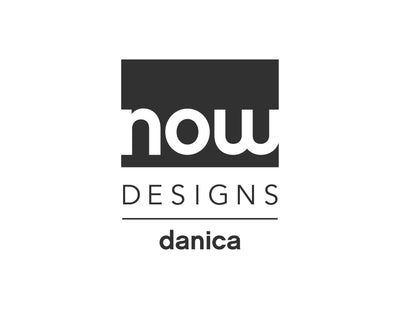Celebrating Danica's 60th Anniversary
As Danica proudly commemorates 60 years of business, we are thrilled to introduce you to the architects of the company's next chapter. Established in 1964 and acquired by Rodney Benson and Jeremy Braude in the coming decades, our now-beloved Board Members are passing the torch to the next generation. Meet Jon Braude, the newly appointed Chief Product Officer (CPO), and Gary Benson, stepping into the role of President and Chief Operating Officer (COO). Along with Sushil Arora, Chief Executive Officer and Chief Financial Officer (CEO & CFO), they share a vision for the future, a commitment to innovation, and a dedication to steering Danica towards continued success.
Join us as we explore the past, present, and future of this iconic company through the eyes of its visionary leaders.
-
Can you share any memorable moments from the early days of Danica?
Rodney Benson: It was very difficult in the beginning, and we had a lot of challenges. Hard to put them in perspective now because so much time has passed, but it took many years to kind of get the company running smoothly and get away from crisis management. At one point, it was just Jeremy and I, we were exhibiting in Chicago and we had put our booth into storage, and long story short, the booth got lost. We had nothing ready, so Jeremy had to pack samples and products with him on the plane, and I had to find a booth. We went through the local Teamsters, referring us to person after person, and eventually some tough looking guy showed up with a booth, set us up for it, and all we had to do was write a cheque for way more than we could afford. We spent that night setting it up, and we were luckily ready for business the next day.
-
How has the company evolved over the past 6 decades in terms of products and services?
Jeremy Braude: I think that Rodney and I are control freaks, no seriously, we wanted to control our lives and we didn't want somebody else controlling it for us. And when you distribute someone elses line, they tell you what to do, and that didn't quite fit with our mentalities, well, certainly not mine. So, to pursue our own brand was very much in the character of Rod and myself. But we were fortunate at the very beginning, I went to the Emily Carr Design School's graduation ceremony, and I found a student that was doing some packaging design on soaps and cosmetics, and I just loved her style, and offered for her to try to work with us. And after that followed another phenomenal in-house designer, and them together were the most dynamite team, mentoring Andrea (our now VP of Creative!), and I think they really got us into our own style and signature.

Rodney Benson & Jeremy Braude
Rodney Benson & Jeremy Braude


What core values and principles have guided the company throughout its 60 years in business?
-
Rodney: Well, I think the number one is respect. Respect for our employees, our suppliers, our reps, and our customers, and that kind of dovetails into always leaving something on the table. So with suppliers, its easy to understand the concept of 'we've never tried to have everything for ourselves'. We never tried to maximize profits. We tried to develop relationships, and that means not thinking about yourself, but putting yourself in the position of the other party. So I think that has been the foundation, and it includes loyalty and integrity, but the result is that you have long term sustainable relationships.
-
Jeremy: I see sort of an inverted pyramid. Traditionally, you get the shareholders on top, and I think we've inverted it completely. We put our customers at the very top, and the second in line, at the time, were our sales reps who served the customers, and then our employees who served the sales reps, and then suppliers because without product, you're nothing! So then we figured out that if we did all those things right, then success would flow back. But it really is about inverting the priorities of your business and putting your customers first.
Are there any specific brands, products, or collections that hold a special place in your heart?
Rodney: Well, two came to my mind right away. The first is this group of products, the pot racks, that we gave it the strange name of "high-tech" at the time, ultimately, Jeremy had adapted commercial products for home use. I, coming from a background of no real creativity, to be apart of the development of something so creative was fantastic, put me right out of my comfort zone. I was in charge of sales, so I had to figure it out in a hurry and that started a very gratifying journey for me, a great sense of pride. The other one was a real turning point in the company's development was something called the Elements of Summer, we came up with the idea of developing a catalog for our customers that we could physically imprint their name. It was a turning point in the fact that it put us into lifestyle products, casual dining, which was generally new to society. Back then, dining had to be formal, like a fancy dinner party where you take out the china and crystal. Jeremy travelled all over the world looking sourcing these products, and that set us on the path we are on now.
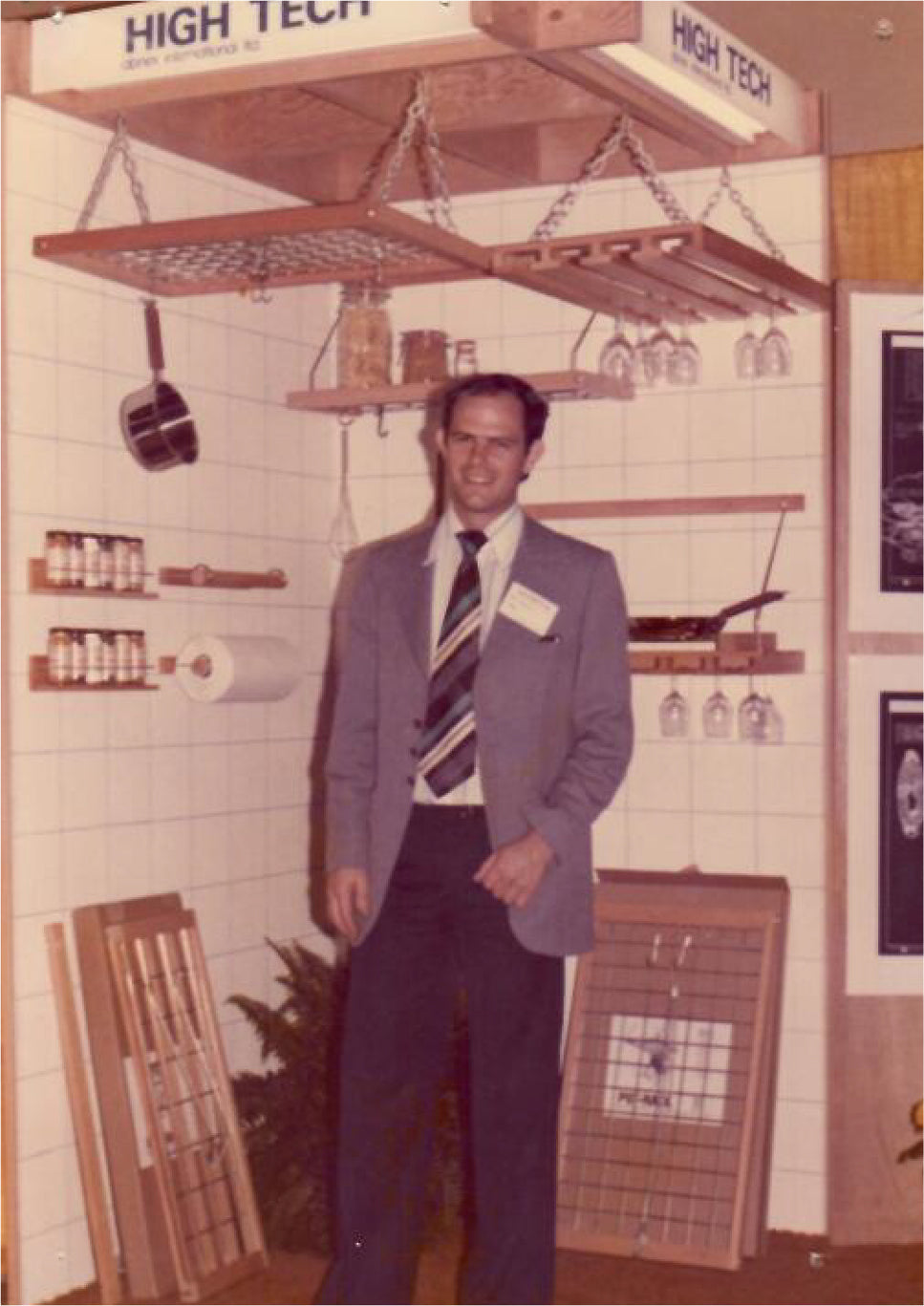
Jeremy: I think what we figured out at the time was that we could not just sell products to our customers. We figured out that to sell on an item basis was not, you know, it's not that unique. We needed to sell a collection, we needed to sell products that if you bought one, you might want to buy the next one, and so this idea of products that were compatible to each other brought us to the point of collections. In other words, we did not want to be an item company, we wanted to be a collection company. And the fact we wanted to sell a collection means that we had to have all the products in stock at the same time in order to ship them out as a collection. What we did was very unusual in the industry at that time, we asked our customers to book product in advance. The key behind it was that we said to our customers that if you buy early, we will ship all of the products at the same time to you, so it arrives as a collection and you can merchandise as a collection. And to me that marked us as a very unusual company that really understood the customers' needs and services the customer's needs in a way that nobody else was.
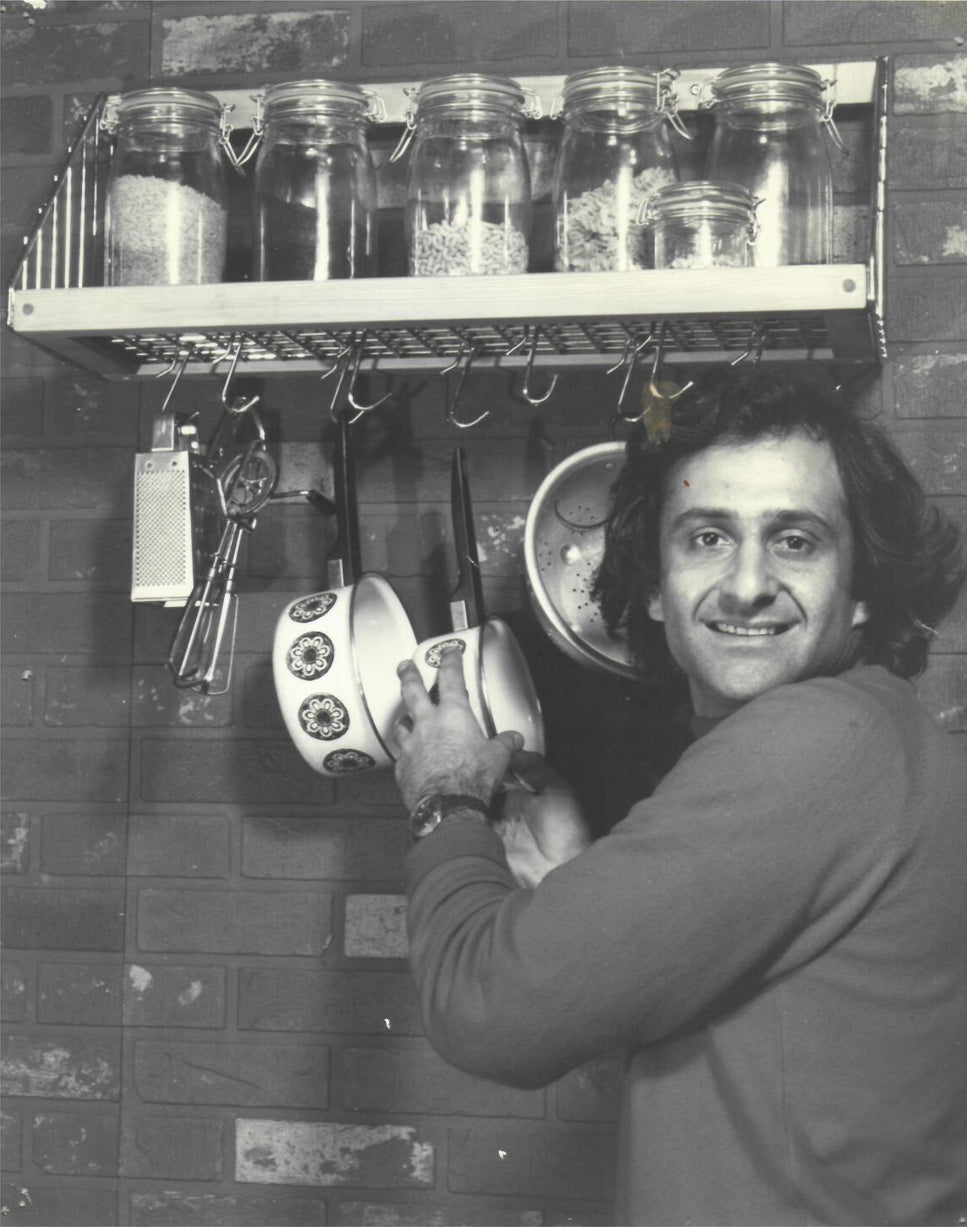
What do you believe is the legacy of the company?
-
Jeremy: I tell you, for me, it's emotional. It's about two people with tremendous differences somehow manage to have a 45 year relationship in business. Everybody said to me in the beginning, Rodney is your friend, you can't go into business with a friend. I think we've proved them wrong, Rod. That is the legacy I'd like us to transfer to not just Gary and Jon, but to Gary, Jonathan and Sushil, that its possible to have long lasting relationships based on respect and that your problems can get solved if you put your heads down and talk about it. There has to be commonality, and a human approach, you have to believe that family is more important than anything else, that individualism doesn't really cut it, that you're a team and that you take care of each other. I have to tell you, Rod has really taken care of me throughout all these years. It's about the way Rod has treated me, you know, it's like a real, deep feeling that he's put his own personal interests behind what he's done for me and the business at some times, and I think that is amazing.
-
Rodney: I, too, get emotional, but I feel very privileged. Just to add to it, referring back to our previous conversation, our relationship is based on mutual respect. We're very different, and we've had lots of differences, but I always took the approach of striving for consensus in our decision making and that if Jeremy didn't agree with me, I should listen very carefully because he's probably got a good point. We argue stuff for hours or days or weeks, or even years, but we listen to each other and that is the key to success in any relationship. You know, as they say, your success is our success and we talked about that being the sort-of legacy, and if we can pass that onto the next generation, as Jeremy says, it's not all about me. It's about us.
Rodney and Gary Benson & Jeremy and Jon Braude
Rodney and Gary Benson & Jeremy and Jon Braude

Growing up around the business, what are some fond memories you have of being in the company from a young age?
-
Jon Braude: I mean, there was so many and it was always so fun! In the early, early days we had the woodshop that was our playground. As a kid, all the tools and the wood and the giant pieces of sawdust, it was good fun but I always loved coming by and helping out with anything I could get my hands on. One funny job I had as a kid, there was a shipment of these enameled steel teapots, and they arrived all stained and damaged in some form. My dad said "we're not going to send these out like this, you have to polish them", so, I sat in the warehouse and polished what felt like mountains of these pots, and back then we probably used the worst chemicals known to man, but all that mattered was that they were polished to perfection and put back in their box.
-
Gary Benson: Some of my oldest memories of being around includes coming in on the weekend and our job was to go into a little room with garbage bags and garbage bags of scrap paper, essentially used paper that we would have to shred them, take them to the warehouse, and use those as the paper to pack in the orders. The highlight of it was always that my sister and I got to pick where we went for lunch, and always, we picked McDonalds. Another one was that we used to do their mailings, we used to print off 10 or 20 different single page sell sheets, layout the piles on the dining room table, and walk around the table manually collating them, folding them, and putting them in envelops, for hours.
-
Jon: Those envelopes would then come to us, and we had to put address stickers on them, and if they weren't straight Jeremy would get so mad!
-
Gary: It was also interesting watching from very early on, starting a business essentially. They used to work in my parents' basement, Jeremy would come over and they'd go down and work from 7am to 7pm, come upstairs for dinner, and that was the work day! And so you know, I think that was one of the biggest things that was instilled in me, work ethic, from my dad.
Are there any products that you remember being particularly excited about when you were younger?
Gary: They had one brand called KiddoWorks, and they did easels, one side had a chalkboard and the other a dry erase board, you could hold paints in it, and get those big sheets of paper that flip from the top. That was a product that was definitely used a lot in our house. They also had a brand called Milano, they had cool products, I still have a giant calculator in my drawer at work thats solar powered.
Jon: I remember there was a couple things, my favorites were the ones that Jeremy really had a hand in, things that he was really proud of. One was the floursack dishtowel sets, he was so proud of the idea of doing the multicolored, it was pretty, and that product was set as kind of a landmark item that made the company. It took us to another level in terms of products that were made ourselves for others to distribute. That was really big, and he was always very proud of them, because no one else had done it before, everything was just white, white, white, everywhere!
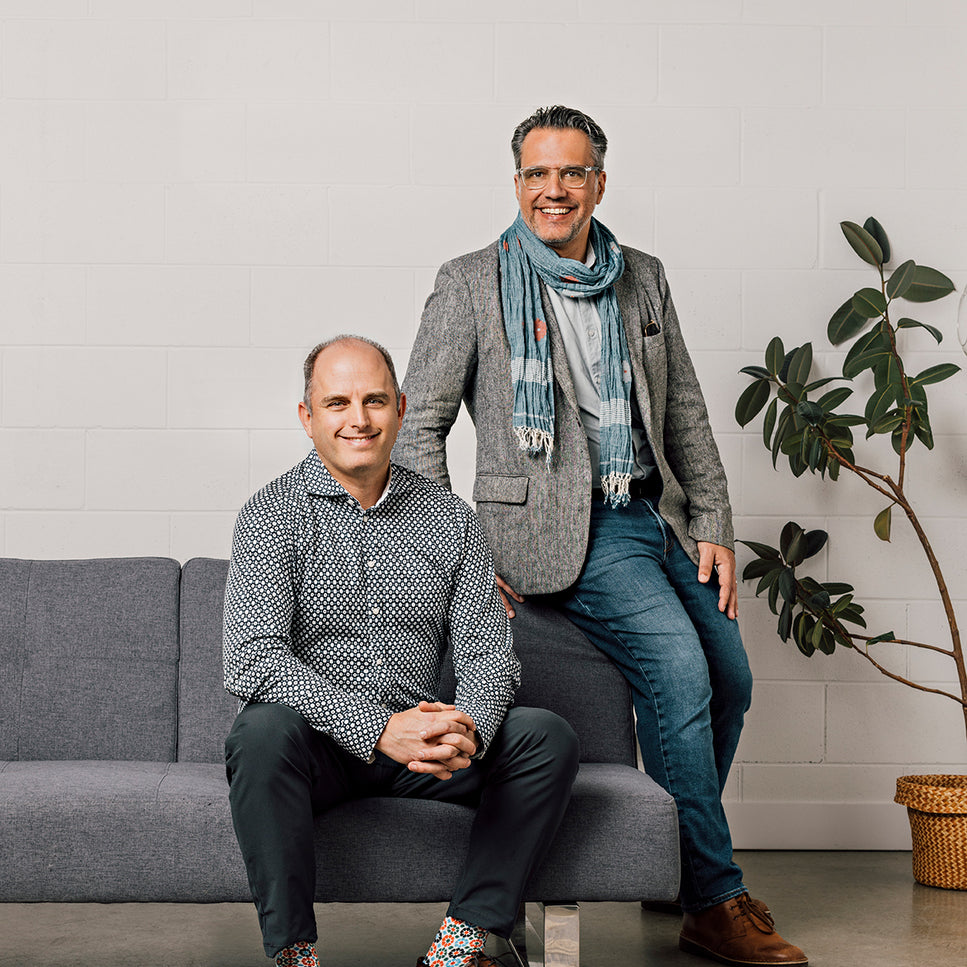
Do you have any company memorabilia or keepsakes that hold sentimental value?
-
Gary: I do, actually. I have one in particular, and it just came to light probably about a year or two ago. A friend of mine was going through his late grandma's basement. She had recently passed away and he found an original 1982 cheese cutter that they made in their factory and still in its box and everything, it’s never been used. Also, since the day I started and maybe even some years before me, I also have every catalogue the company’s ever produced. And when Margaret retired, she gave me all her Swatch books that they used to train reps before catalogues came out.
Oh, so there's another thing that I found. So, when we sold our last office building, I found the very first seal. As in, when you get a shipping container, there is a metal seal at the back that locks it, and I found the very first seal for the shipment that came in with, probably, our wine racks or something, first shipment they ever received. And I got it framed and put a little plaque on and gave it to my dad.
-
Jon: I have a painting from our first catalogue kicking around somewhere, that was in Rodney’s office when he was here. They had a friend who was an artist, a painter, and we commissioned her to do the cover of our very first catalogue. It's very special.
What was it like working alongside your fathers?
Gary: There are always some forms of challenges when working in family businesses, but I have been very fortunate that we haven’t had any major obstacles that couldn’t be overcome. One area I personally struggle with is when to draw the line about talking about the business, when we are not in a business setting. It’s difficult as my mom used to work in the business, my younger sister did a couple summer stints, and my wife (Kerry Benson) is our Sales Director, so family dinners can easily be taken over by business discussions. From the onset about 20 years ago, when I formally joined Danica, I never reported directly to Rod which I believe helped us maintain a very strong relationship to this day. I continue to have weekly lunches with Rod as he is and continues to be my number one mentor in my business life.
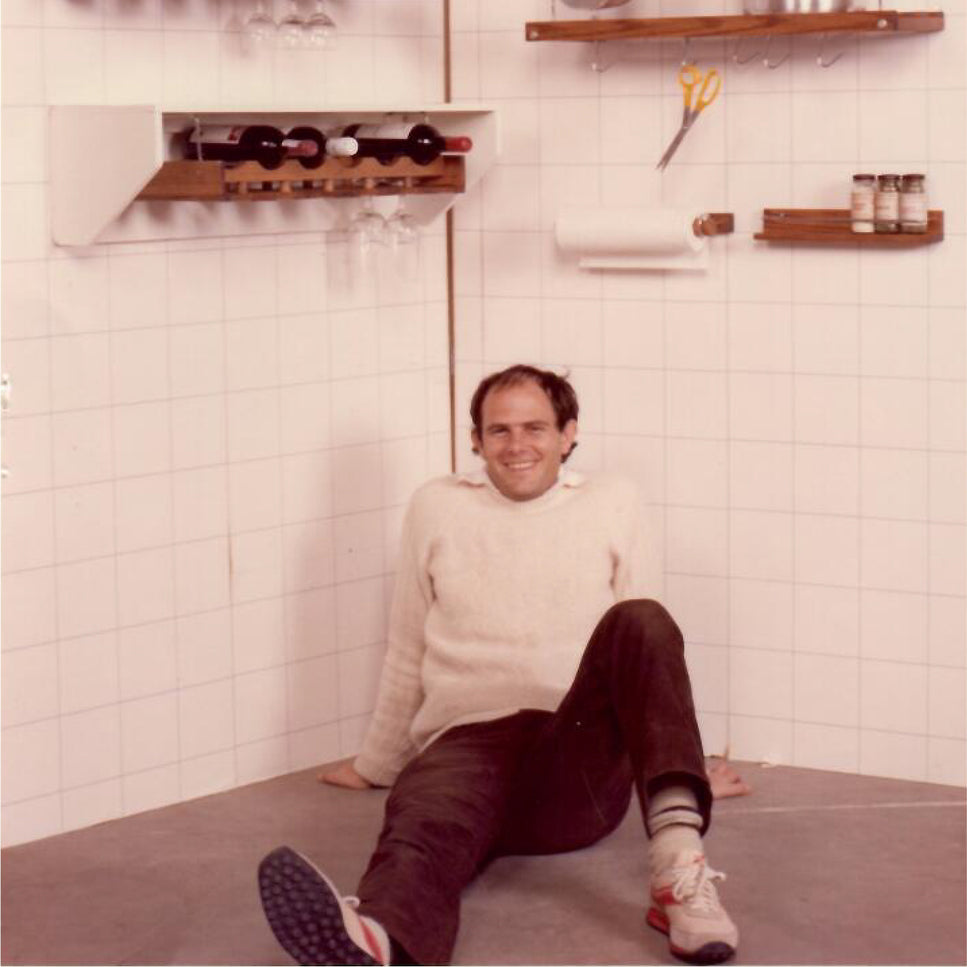
Jon: It was the best! I worked directly with him and we traveled a lot, it was good times. Trade shows, factory visits, it was really really fun and I miss it still, actually. It was a privilege and a pleasure working with him for so long.
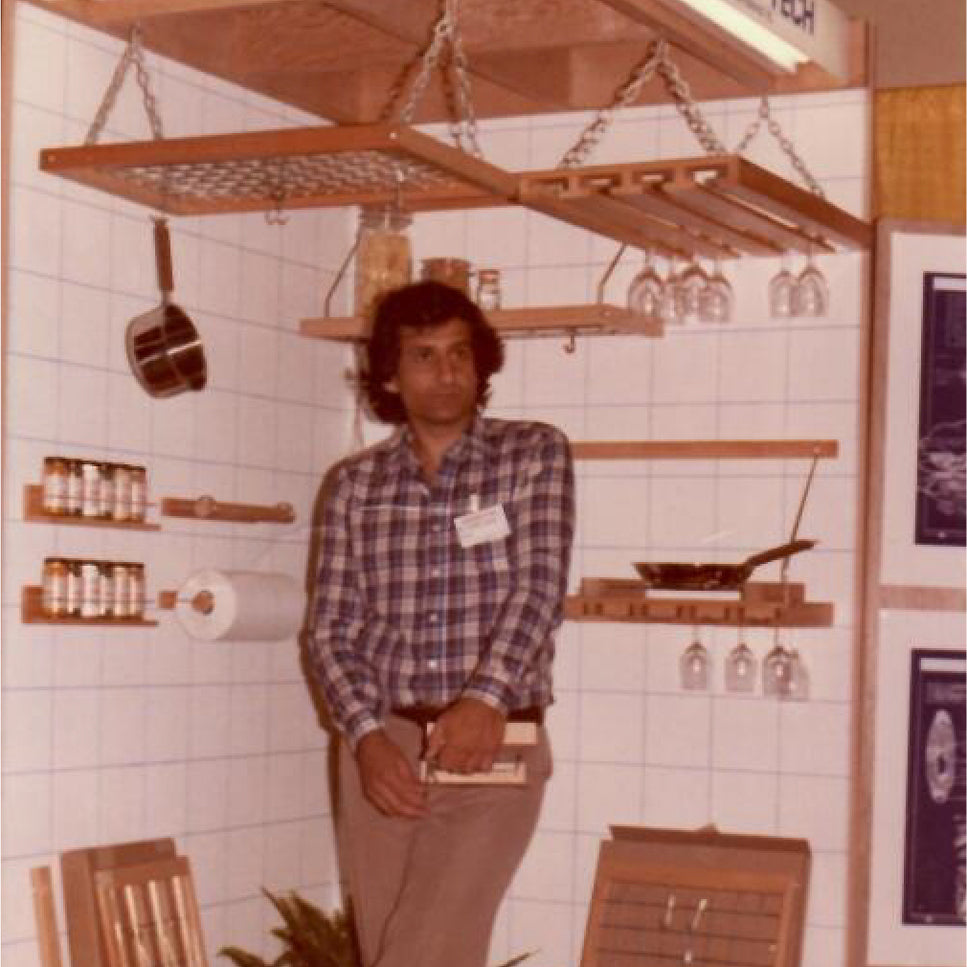
Have there been any collaborative projects or initiatives where the founders experience helped you to your success?
-
Jon: There was a time that Jeremy and I had to go to China to teach our factories how to make our aprons and our mitts, we literally had to go through every single stitch and construction methods with them. Tiring, but overall a great time.
-
Sushil Arora: I wouldn’t say so much as collaborative projects or initiatives come to mind even though there were plenty but perhaps the most important piece of experience or rather wisdom they passed on to me was appreciating the value of relationships. I thought I understood the importance of win win resolutions and interactions but they both certainly solidified it and I now take every opportunity to share that advice with others.
-
Gary: I never reported directly to Rod or Jeremy during my time at Danica. As mentioned earlier, ever since Rod “retired” about 8 years ago, we have had weekly lunch meetings, that are more like mentoring sessions. These have brought us closer than ever to each other from a business aspect and have enhanced our personal relationship along the way, I’m not sure I would have progressed as much as I have to become the President and COO of Danica if it weren’t for these sessions.
-
Sushil: So you're reminding me, for I don't know how many years, Rodney and Jeremy and I had lunch every day for YEARS. It was pretty invaluable. Well, because it was those conversations where we had started talking about the next chapter, things that are hard to describe and remember now, but I know lots of positives came out of it, and at the same time it was very unstructured. Decisions, world changing decisions were being made over a bowl of pho.
What made you join Danica and what made you stay?
-
Sushil: I had a conversation with Rodney and Jeremy before they retired in 2015, and I remember telling them about my journey driving to the office for the first time. I pulled up to this run down, broken building, and I came from a company that had leather and mahogany in every corner, and its pouring rain, I'm stepping in puddles, and trying to tippy toe up the stairs and I remember getting to the front door and thinking “What am I doing here?” We had a laugh about it. At the end of the day it was the two of them, Rod and Jeremy. You know when you feel a great connection, and it’s mutual, it feels really good. It’s funny for me, I had a joke that if those two had a love child, I would be it. And so, in some way Jon, Gary and I are all weirdly related. But overall, it was great, you stay because of the people, and I think that’s why we all stay. Danica was the smallest company I had ever worked for, and so when I came here, you felt like you were somebody and your voice mattered and you realize that that environment fits better than some other companies and I think everyone has to find that out for themselves. But to me, that’s the most important part, I get up everyday and strive for ‘how do you keep that?’ and it became part of the vision for the company.
-
Jon: I think that's something true about the industry in general, its kind of a labor of love. There is definitely easier ways of making money, so you have to love it for sure. The one thing that I find whether it’s retailers, other vendors, reps, everyone in the business genuinely has a love for this stuff we make and sell, and our lives revolve around it. I think it’s what keeps most people in.
-
Gary: I love the fact that running a company, you think about how you’re responsible for so many employees and their families. It extends past that too, to reps, customers, and suppliers, just about everybody involved in the supply chain and the value we're adding to their lifelong journey. That responsibility, I think it's engaging and powerful to understand, I enjoy it and its of great value.
What do you think is in store for the future of Danica?
-
Sushil: I think the piece that excites me the most is that when I think about decades ago when you would have asked us about Danica, we used to say "oh, we’re not a brand", we didn’t resonate with the market, we’re just purely here to do wholesale. And of course, that’s still the crux of our business and will always be a big part of it, but I think that the product and the company has become an identity, not just in the retailer community but also at a consumer level, and I think we’ve only begun that process. So I’m very excited about the next chapter and really leveraging what we’ve build over two generations.
-
Gary: I think also that we’ve kind of matured so much as a company overall, with the combined 60 years (between the 3 of us), we’ve gone through a lot of ups and downs, whether its through financial recessions, COVID, or what have you, I think that we’re in a place to start to propel ourselves forward and focus on continuous operational improvements. Our supply chain is top notch, and I think it’s going to get even better.
-
Our catalogs are the heart of the company, there’s so many creative, talented people in the company and I think that with so many new people being hired in the past 10 years, I think there’s a lot that everybody’s going add to the success moving forward. As you said, it can get stale after a while, so change is good.
-
Jon: What I’m excited about is that little bit of magic, that kind of start-up, experimentation thought process that came from the early days, it just hasn’t left the company. And you know, we could say ‘let’s just make aprons for the rest of our lives’, and we’d be fine, but we didn’t, and that has been around since the beginning. This constant curiosity, this constant idea of ‘what else could we do?’, ‘what else can we make?’, ‘what other type of customer can we serve?’, that doesn’t just go away. You see other companies hit this stage and they put it on autopilot, and those companies tend to survive for 10 years or so and then the market changes and everyone realized that they kind of got stale. So, the trick is to never lose that.

